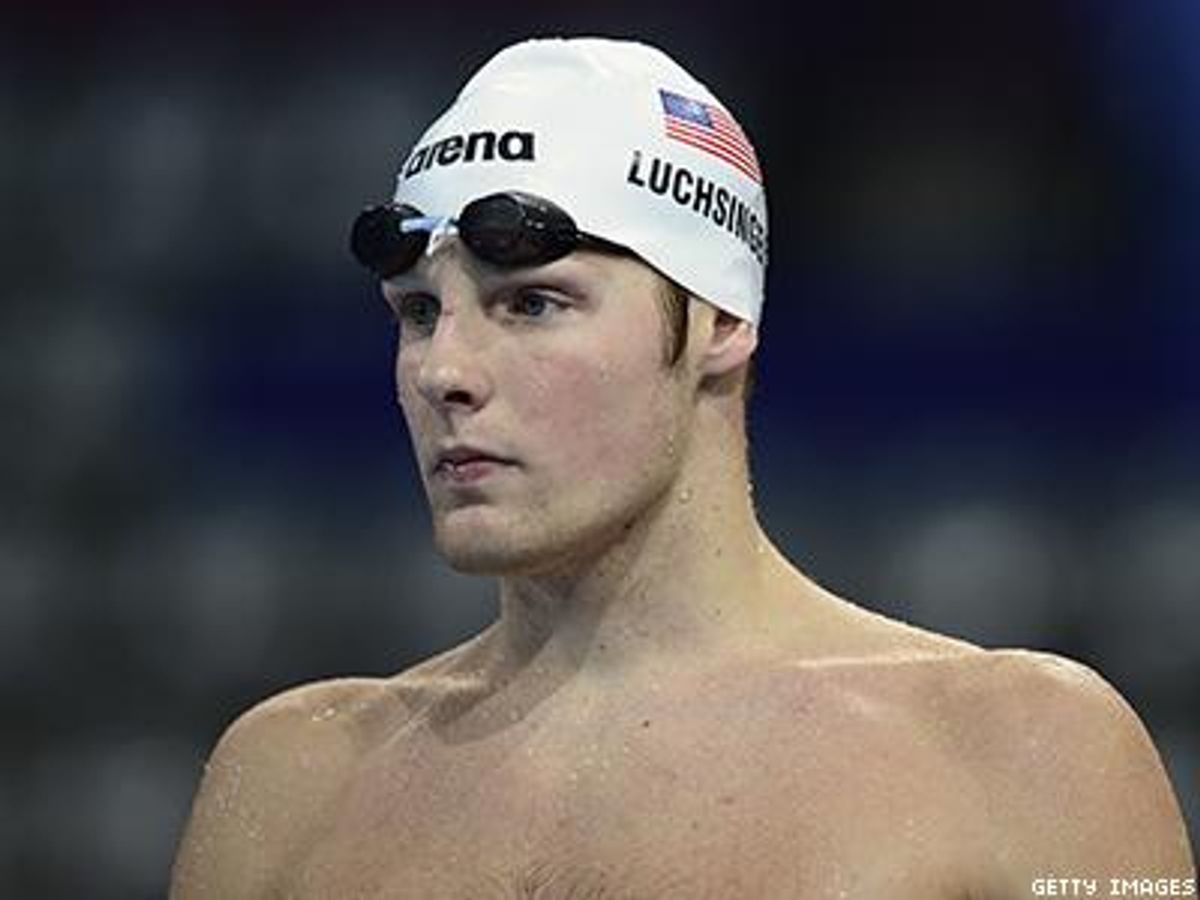The life of a closeted athlete -- or of anyone who chooses to live in the closet for a myriad of reasons -- is most accurately categorized not as a life of deception, but as one of duality. For many in the closet, their stories are often categorized by this idea of a "double life," and the stress of living this duplicitous lifestyle is what eventually brought Olympic hopeful Tom Luchsinger out of the closet.
Luchsinger describes his experience in a brave coming-out piece for Outsports, remembering a particular morning in April 2013. "I wake up and look at the clock. 2:58 AM," Luchsinger begins. "I don't have to be up for another two hours and five minutes for the first of three workouts. Yes, I'm that exact. In the wee hours of twilight my mind begins to race. I can feel my heart rate rising and my body beginning to perspire as I think, 'You're gay.'"
As a way to escape this reality, Luchsinger says, he threw himself into his activities. In addition to being a star swimmer for the University of North Carolina Tar Heels, Luchsinger is a diligent student. By a student athlete's yardstick, Luchsinger has a lot going for him. But the constant criticism he put on himself for being a gay man infiltrated everything about his sense of self-worth. "You name it, I hate it about myself," he puts it simply in the Outsports piece.
Just a few months later, at the 2013 U.S. National Championships in June, Luchsinger won the title in the 200-meter butterfly and qualified for the 2013 World Aquatics Championship in Barcelona. After the national title, Luchsinger says, his life changed, as he was suddenly projected to make the 2016 Olympic team. "I had attention from fans, I had a sponsor, and I found a new responsibility to keep the swimming community updated on the majority of my life," he recalls.
With the newfound fame came newfound fears, particularly about being outed, either on social media or by the press. He knew the attention he was getting was for his immense talent, and any press covering him were most likely doing so because he was a national champion. But the double life and haunting fear that someone could out him at any moment elicited paranoia and self-deprecation from Luchsinger. "I always wondered, 'Why would anyone want to take a picture of me? Why would anyone want to film me? I'm nothing but an unaccomplished, closeted queer.'"
The spotlight was jarring, but even more so when Luchsinger began to turn the microscope onto himself. "How was I supposed to be comfortable in front of a camera when I couldn't stomach looking at myself in the mirror?" he remembers thinking. "The attention that some athletes revel in was causing me turmoil."
As the attention grew, he found himself increasing his efforts to mask his sexuality, obsessively censoring himself on social media and trying to appear more masculine in interviews. "I was the King of the Double Life," he recalls.
The duplicity proved to much to bear, and earlier this year, Luchsinger made the decision to come out. He made a deal with himself that if he didn't repeat his championship title, he would come out publicly. When he finished a disappointing seventh in June, he decided it was time.
Like most people beginning the process of coming out, Luchsinger first reached out to those whom it would be easiest to tell: a gay former UNC swimmer; his understanding and nurturing older brother; and his best friend, Kate, who was excited and not the least bit taken aback.
Next came his parents, whom Luchsinger called from a hotel room in Chicago. "I'm gay. And I'm scared," he told them. But their reaction couldn't have been more supportive. "I lucked out to get them as my parents," he says.
With each person he told, Luchsinger says. the experience got easier. "It was shocking how easy something that caused me so much pain and anxiety simply began to roll off my tongue," he says, adding, "The best part: No one seemed to care!"
Luchsinger's proverbial cloak of shame shrunk down to the size of his swim trunks, and in its place came a sense of pride in not only his sexuality but his courage. "For years, my sexuality was the quality I was most ashamed of about myself. But now it seems that being gay is one of the characteristics I'm most proud of. I have accomplishments linked to my name that most heterosexual men will never have. I've overcome the fear of being rejected from the people I love the most."
As an athlete, Luchsinger has trained for years to be the best possible version of himself. He says that now that he is out, the fears and stresses he had been carrying have subsided tremendously, and he is able now to focus on the things he likes about himself, rather than living in the world of perpetual self-judgment he described so vividly back in 2013. Or, to put it simply: "I'm still the same person I have always been, just a hell of a lot better at it."
You can follow Luchsinger on Twitter @TomLuchsinger.


















































































